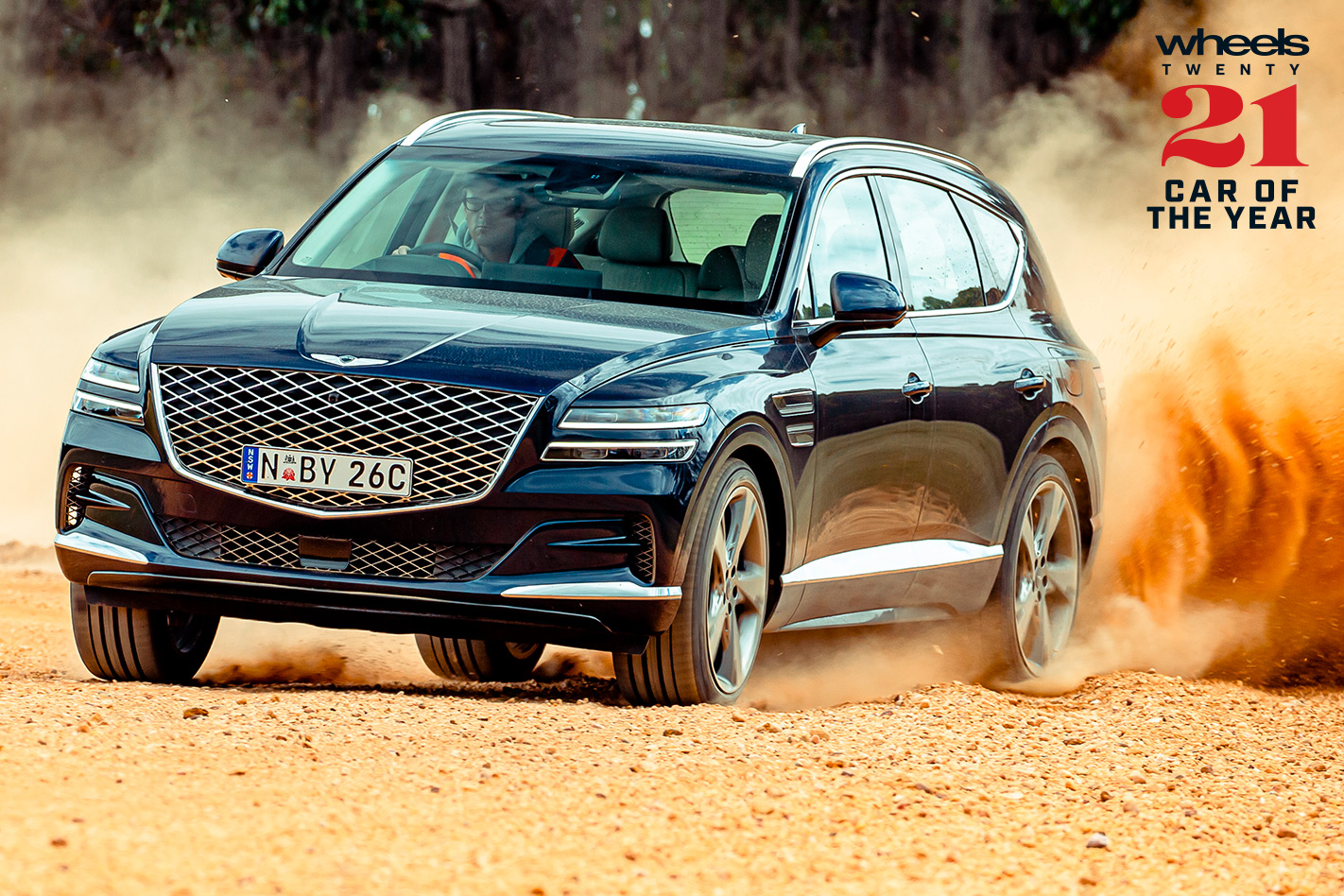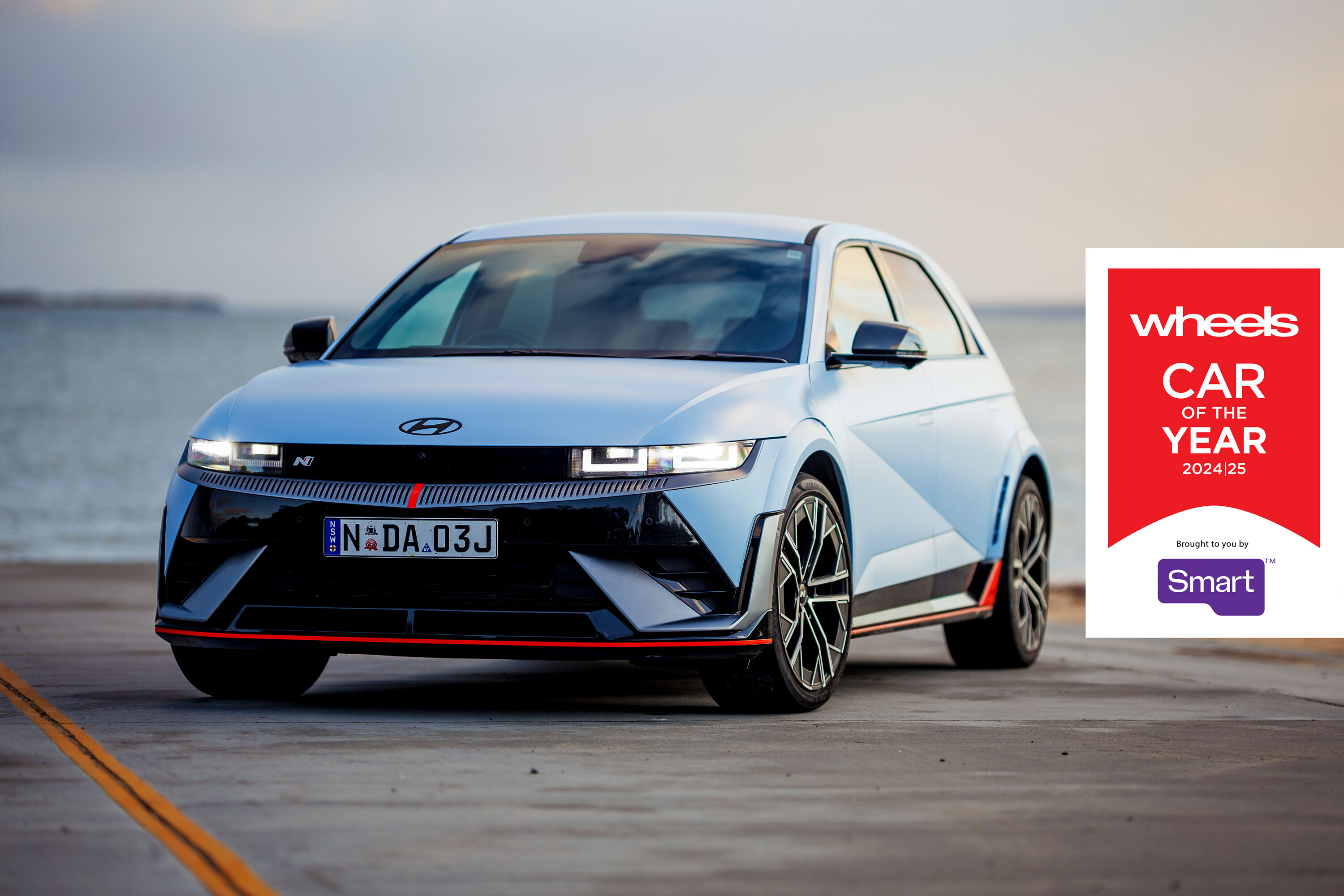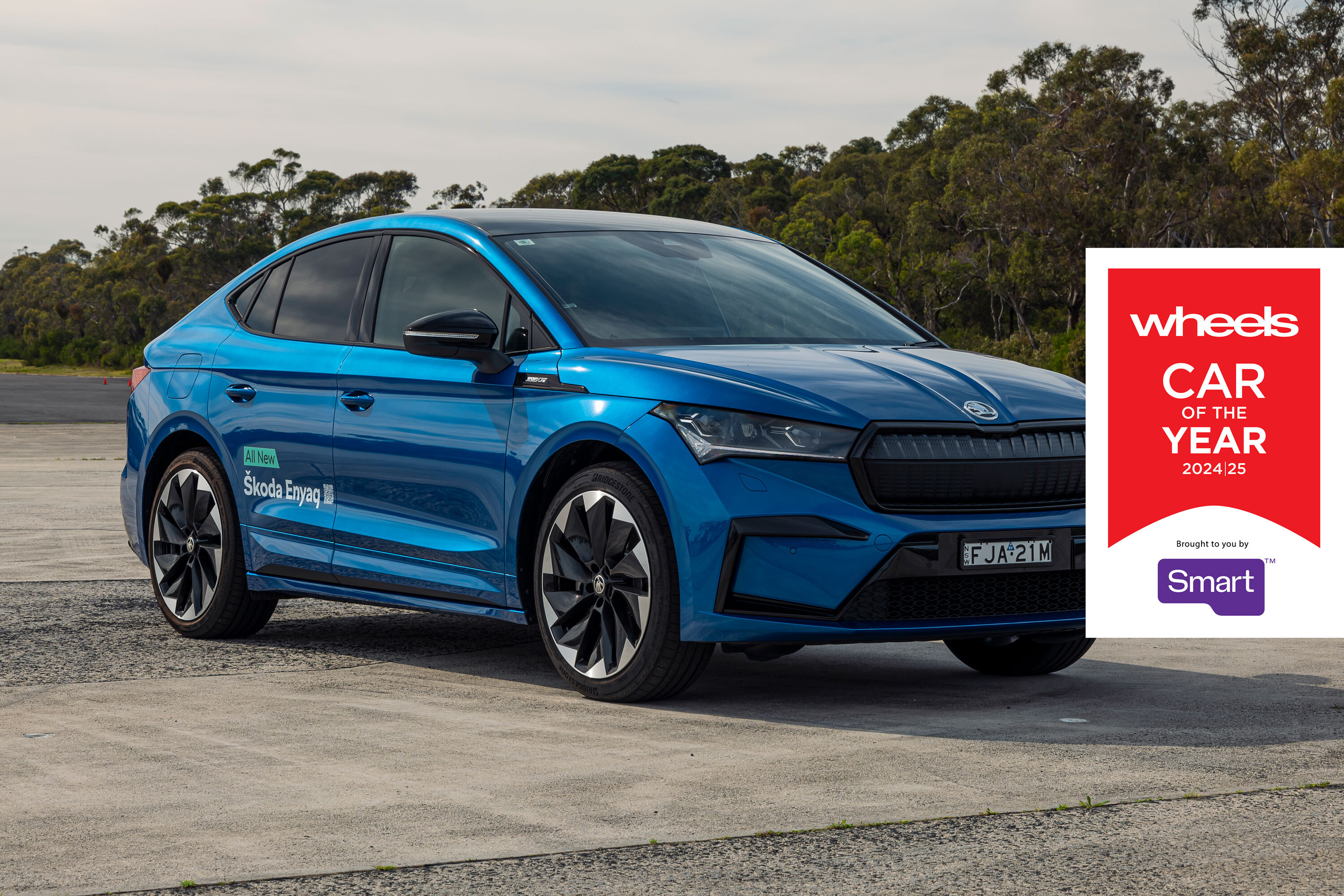There’s more than a whiff of new beginning to the Genesis GV80.
Years after dipping its toe into the Aussie market with slow-selling big sedans, it feels as though the cavalry is finally arriving in the form of two much-needed SUVs.
The broad-shouldered and imposing GV80 is the first to launch (a smaller and more affordable GV70 is due later this year) and it’s clear Genesis has gone all-in to lure buyers away from established rivals like the Audi Q7, BMW X5 and Mercedes-Benz GLE.
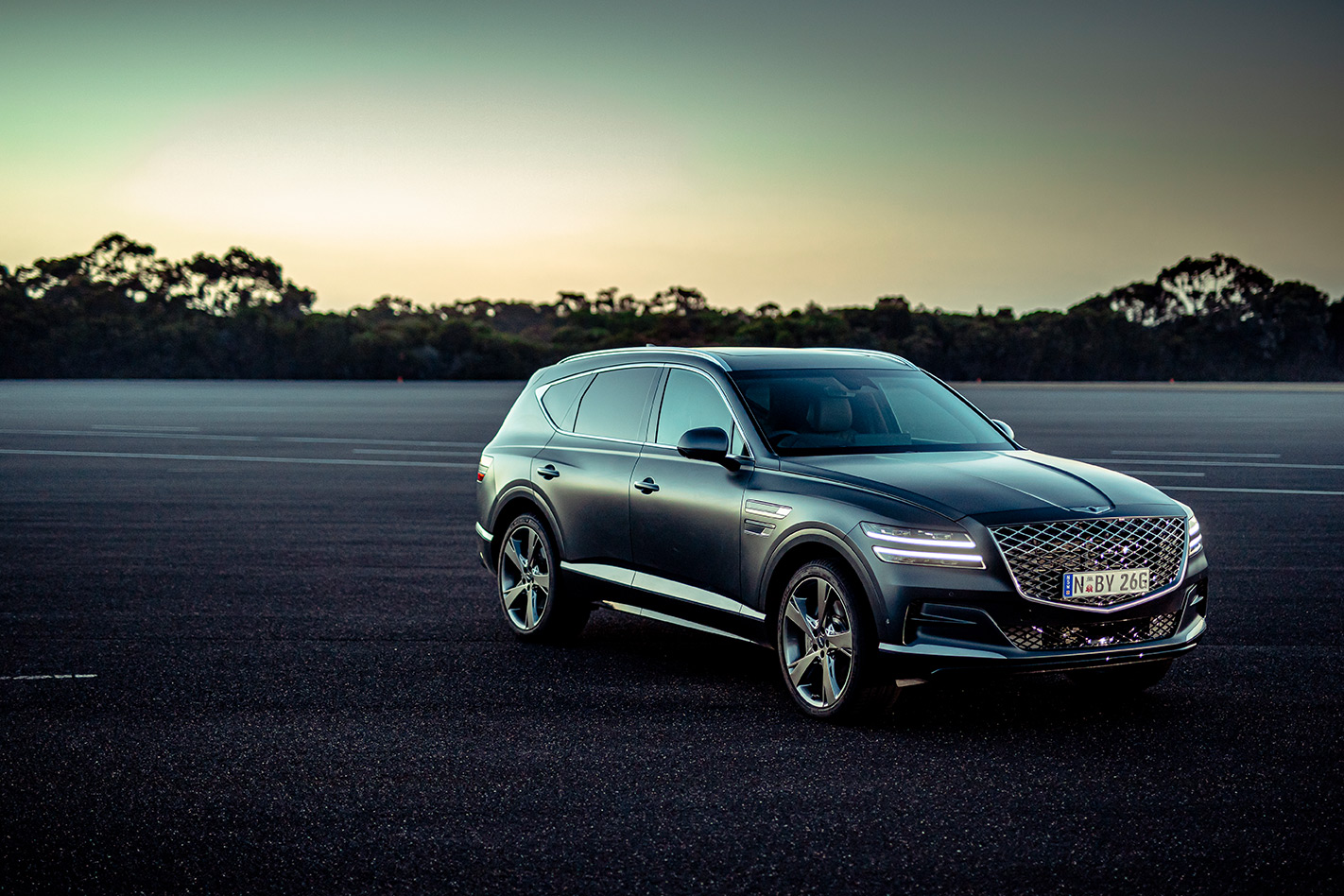
Pretty much everything is new. Riding on the fresh ‘M3’ platform which is stiffer and lighter than previous Genesis underpinnings (and using aluminium for the bonnet, tailgate and doors), the GV80 also debuts three ‘Genesis exclusive’ engines: a 224kW/422Nm 2.5-litre turbo four, a 279kW/530Nm 3.5-litre twin-turbo V6 petrol and a silky 204kW/588Nm 3.0-litre straight-six turbo-diesel.
And crucially the days of Genesis raiding the Hyundai parts-bin to equip the interiors of its cars are long gone. Unlike the Genesis G70, which underwhelmed at last year’s COTY, there isn’t a single screen, switch or button in the GV80 that looks as though it has been lifted from a Hyundai.

“Wow, this interior is nice!” noted editor DC. “Feels special; a big step up on the G70.” Top marks for cabin opulence, then, and also for build quality and choice of materials.
You won’t find softer leather, deeper carpets or tighter stitching in any German. Throw in a roomy cabin, comfy seats, an electrically operated and adult-friendly third row (in mid- and top-spec versions), and a huge 14.5-inch centre touchscreen, and the GV80 makes a very good first impression.
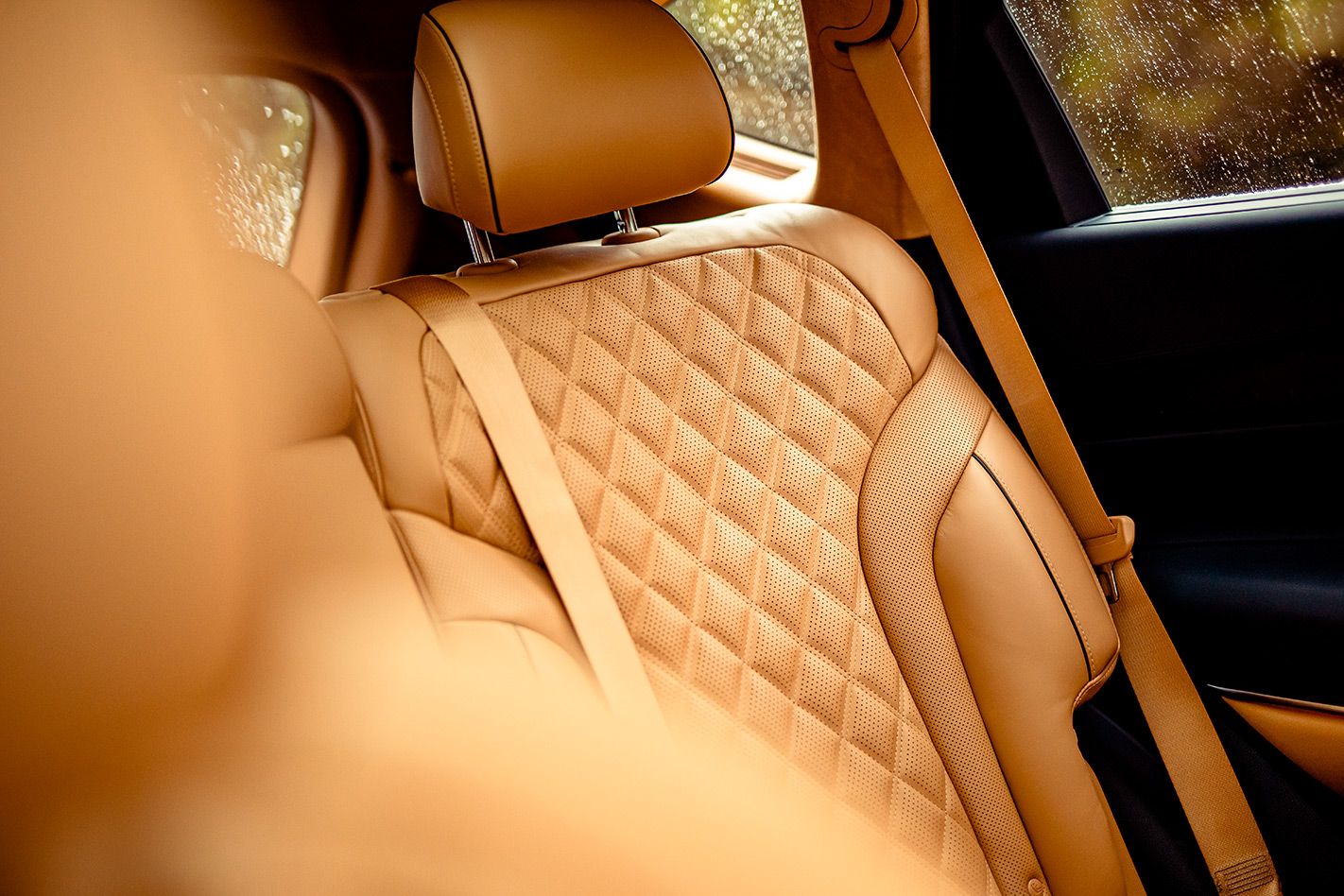
Value is another Genesis strength. No GV80 is what you’d call affordable – the four-tier range kicks off at $90,600 for the rear-drive 2.5T and tops out at $108,600 for the flagship petrol V6 – but there is value to be found when measured against competitors.
Genesis claims the GV80 undercuts its like-for-like competitors on price by 10 percent while offering 15 percent more value thanks to a standard equipment list longer than any German rivals. Buyers also score free servicing for the first five years.
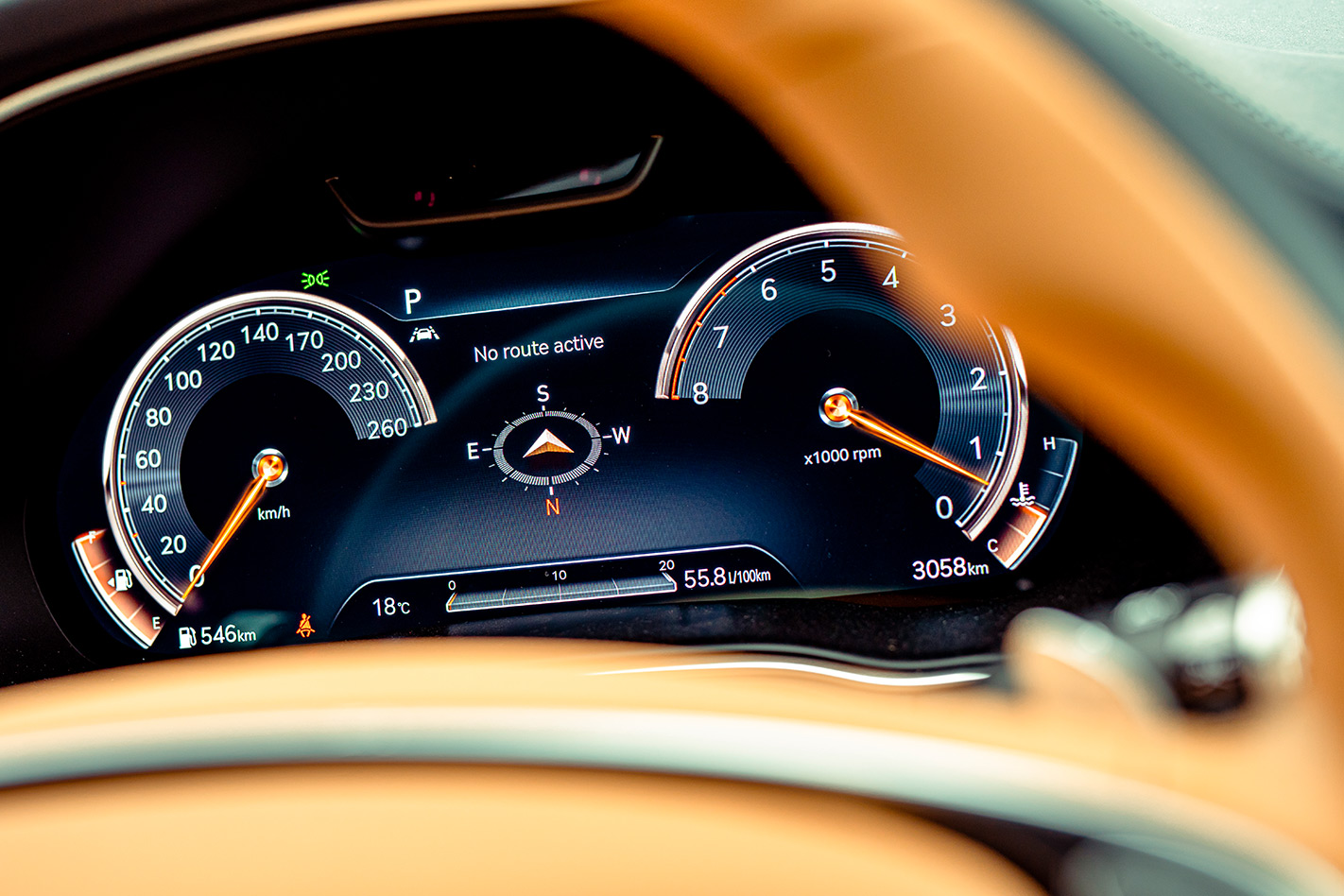
Standard safety inclusions are impressive, with 10 airbags (including one between the front seats) and all the active systems buyers expect at this price point. It’s worth noting, though, that ANCAP is yet to test the GV80.
Where cracks begin to appear is once you get the GV80 on the move. There are no complaints about the engines. All three units are eager and grunty and are paired nicely with a smooth-shifting eight-speed automatic.
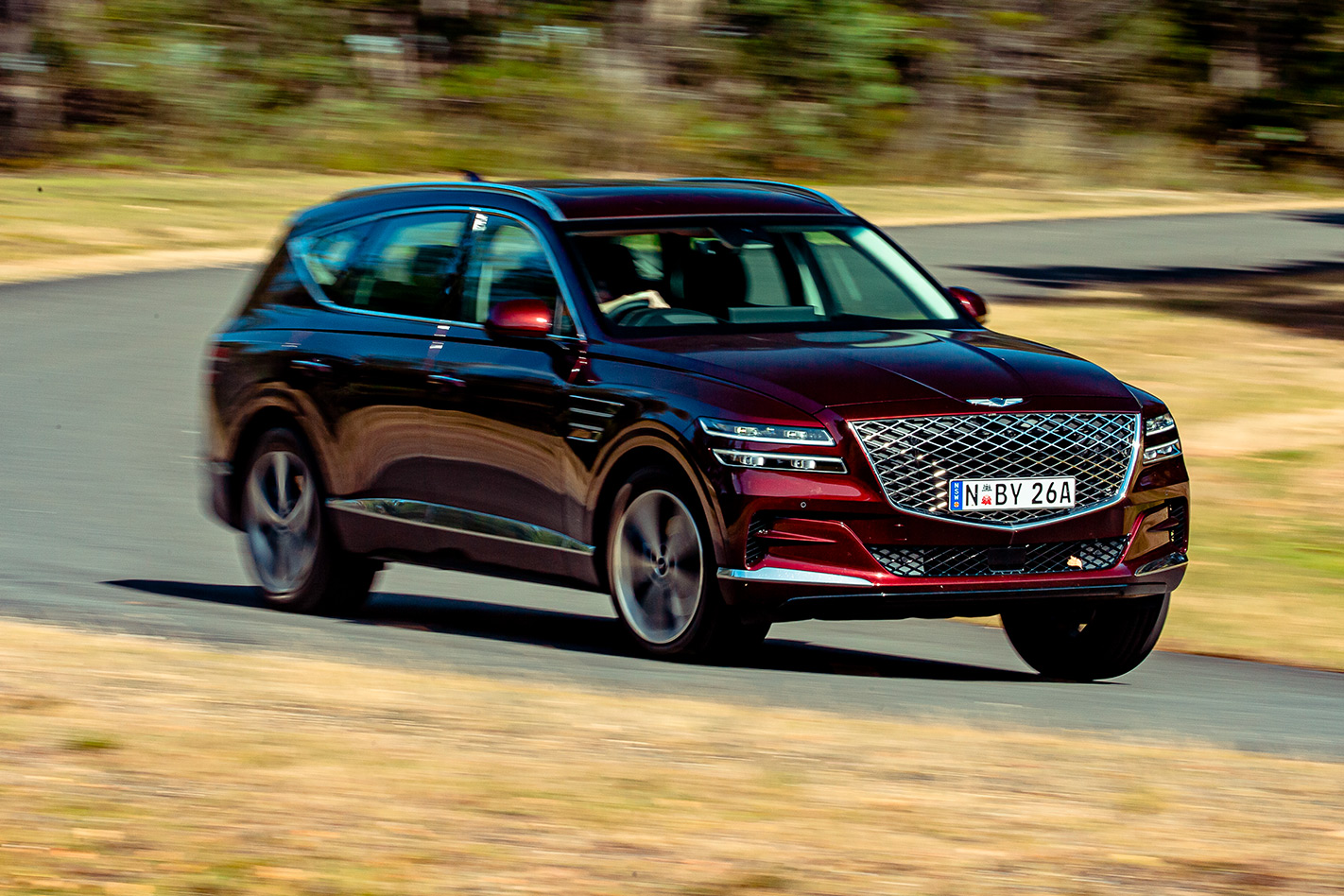
Cabin refinement and NVH suppression also earned universal praise from the judges, as did the excellent dirt-ESC calibration and phenomenal dry braking performance.
“But dynamically it’s a bit confused,” wrote Byron. “The ride is comfortable on smooth roads but in Comfort mode the control isn’t quite right.”
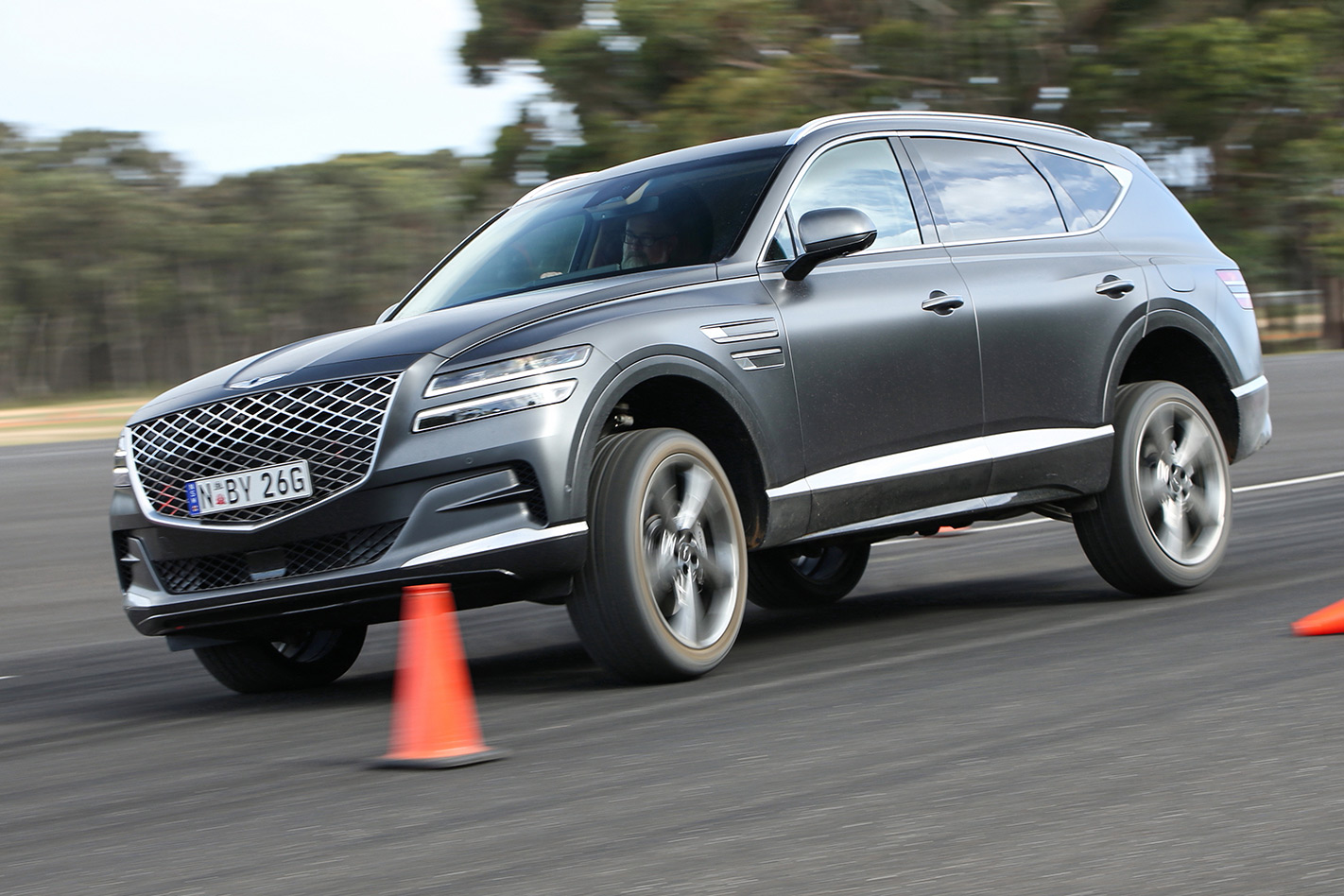
Locally honed suspension is standard and six-cylinder models also score adaptive dampers that are linked to a bump-detecting front-facing camera, but a lack of body control and pronounced pitching undermines the GV80’s dynamic polish. Not fitting petrol variants with fuel-saving ‘stop-start’ technology and the absence of a hybrid version also hurt the GV80’s case against the Efficiency criterion.
In the end, the GV80 scored enough votes to finish at the pointy end of the field, but not enough to progress into our Top 3. A COTY winner it isn’t, but a genuine and convincing alternative to the luxury SUV establishment? Absolutely.
Richard Ferlazzo on the Genesis GV80’s design
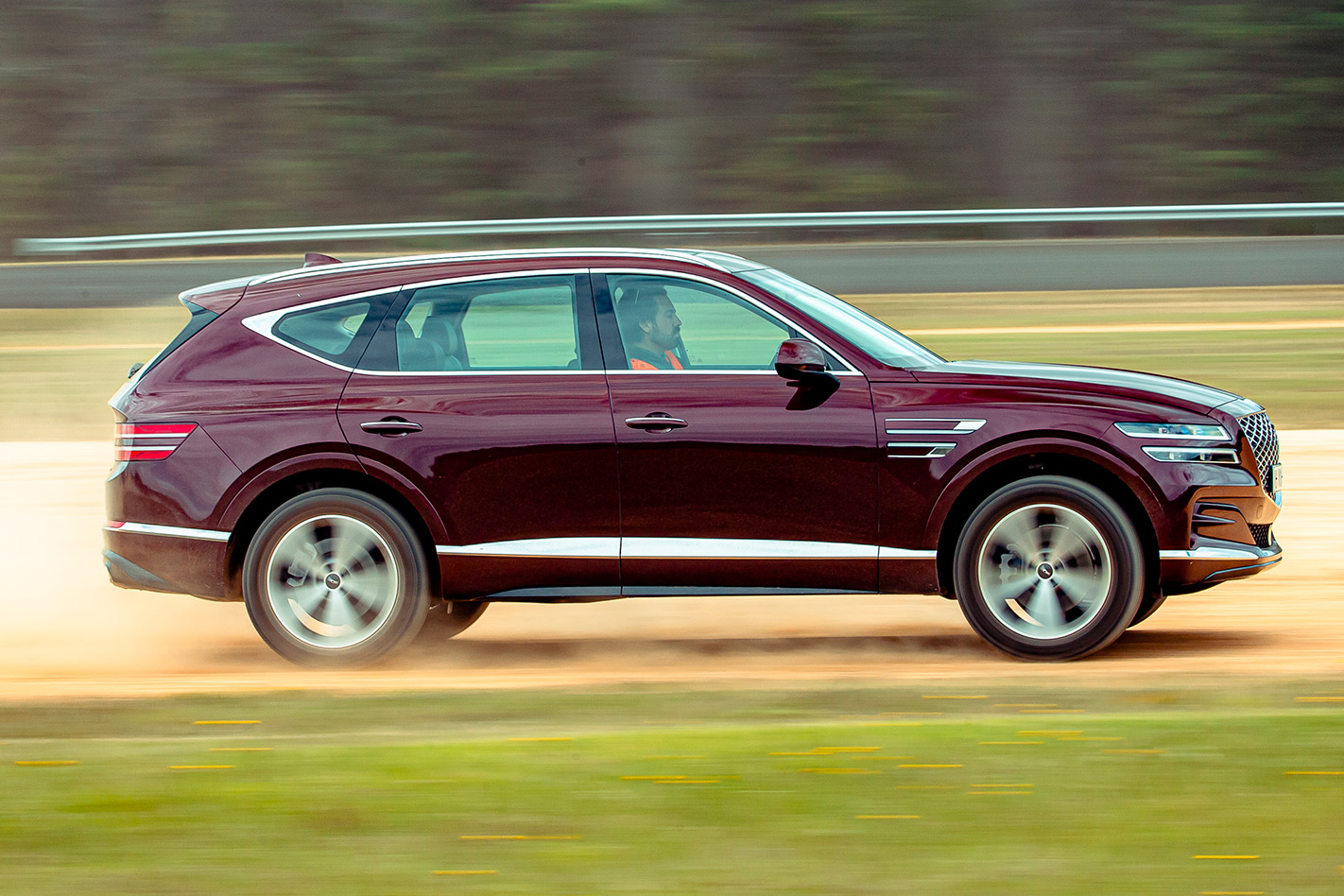
“The GV80 has all the features you would expect at this price point but execution of the exterior detailing lacks a level of refinement to disrupt the establishment.
The exterior has imposing road presence and while I don’t mind the theme of the front end, the execution feels a bit raw and contrived.
The Interior is a better story with an opulent and serene ambience. Rich materials abound in a very comfortable environment, with only a few touches of overt bling.
I rather like the blind-spot feature in the Instrument cluster screen which comes on with indicator actuation, even if this is standard on the top-spec Sorento at $62K.”
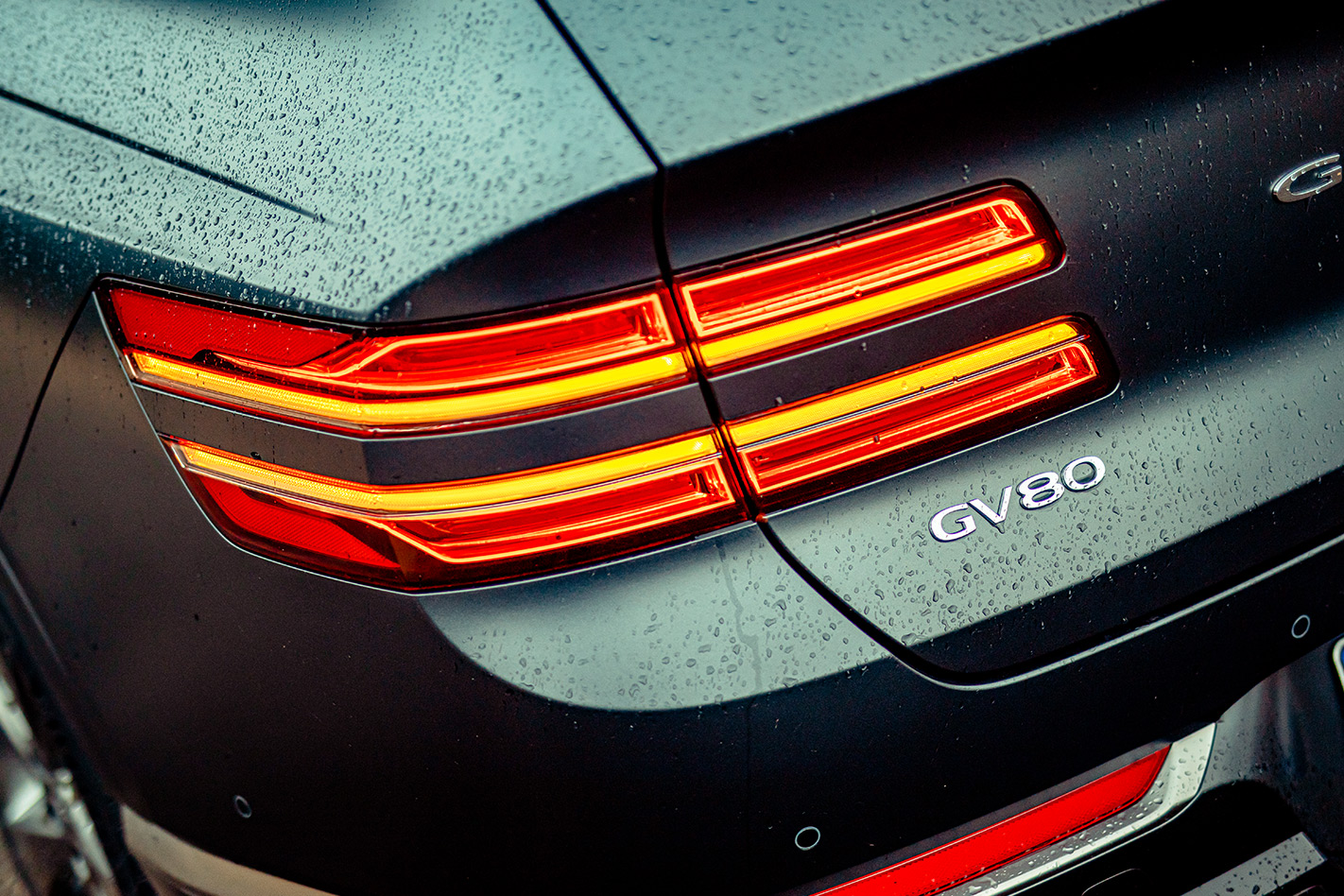
Variants Tested: – 2.5T 2WD ($90,600 as-tested) – 3.0D AWD ($103,600 as-tested) – 3.5T AWD Luxury ($120,600 as-tested)


